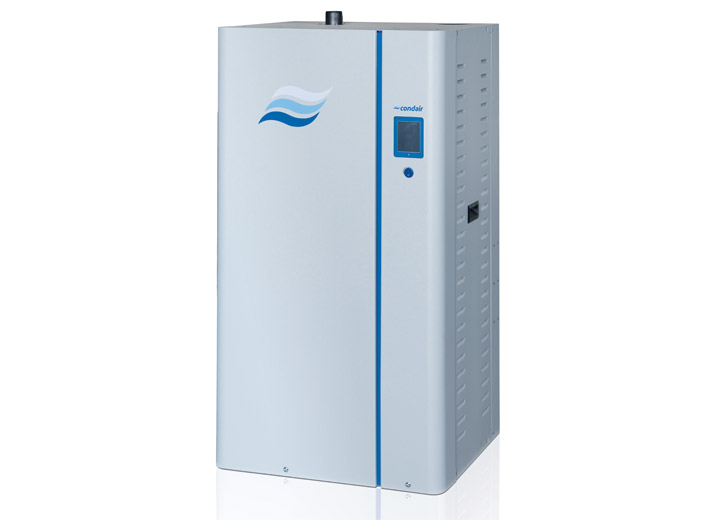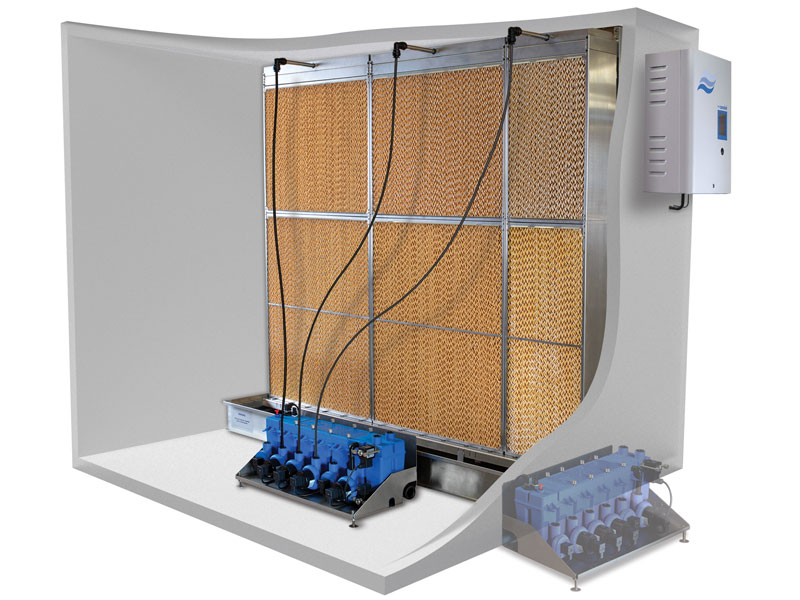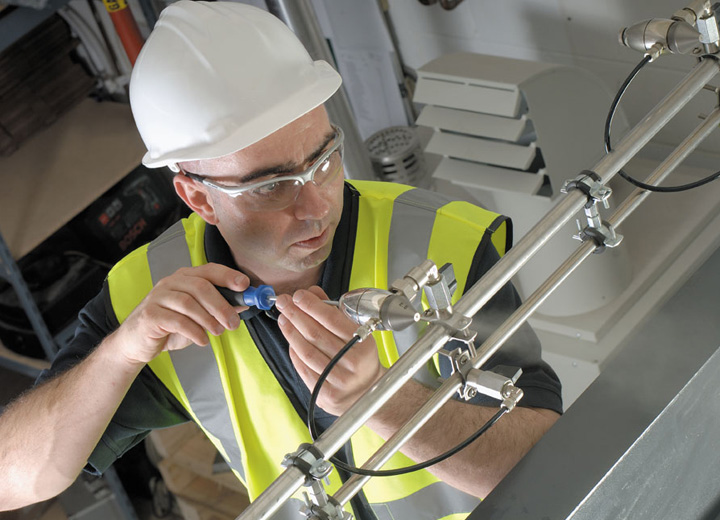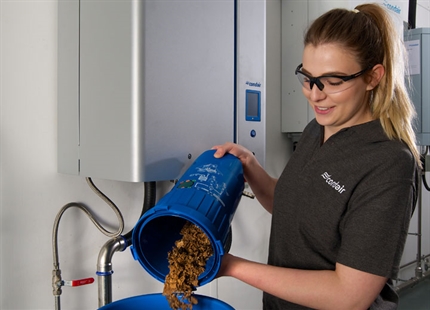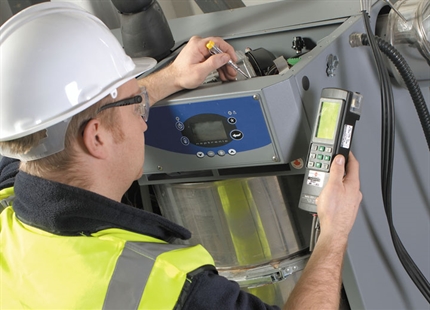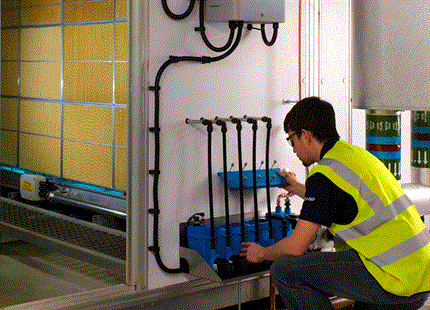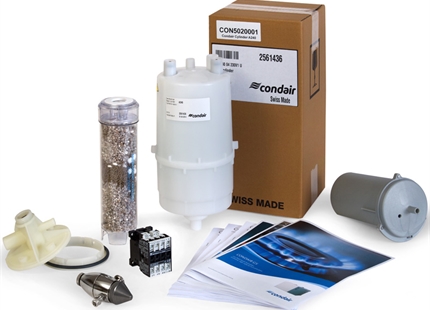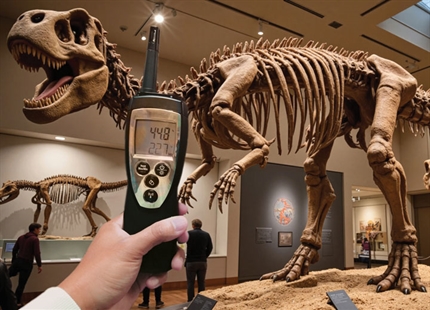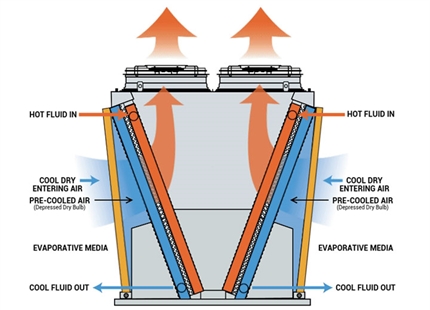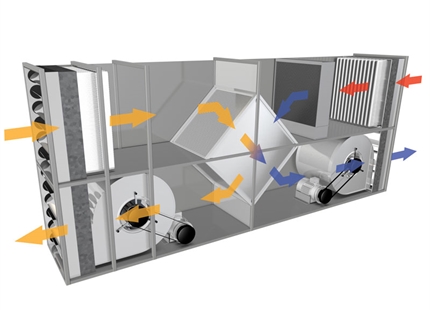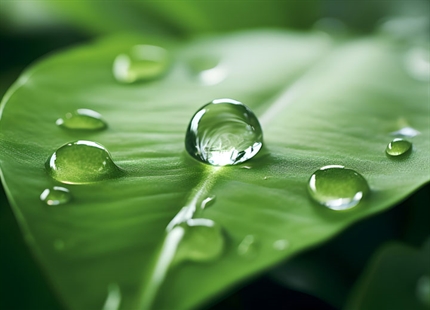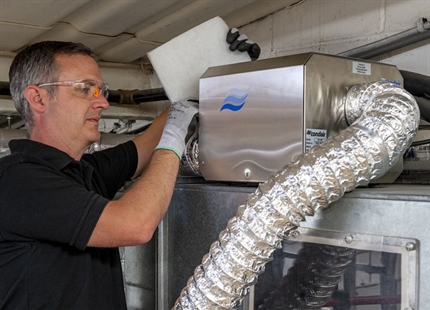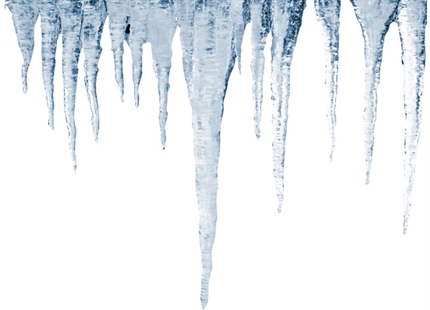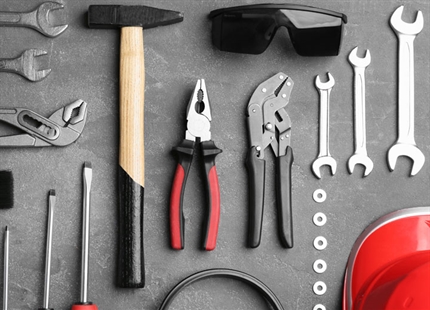
Author: Tony Tullett, Service Director, Condair Ltd
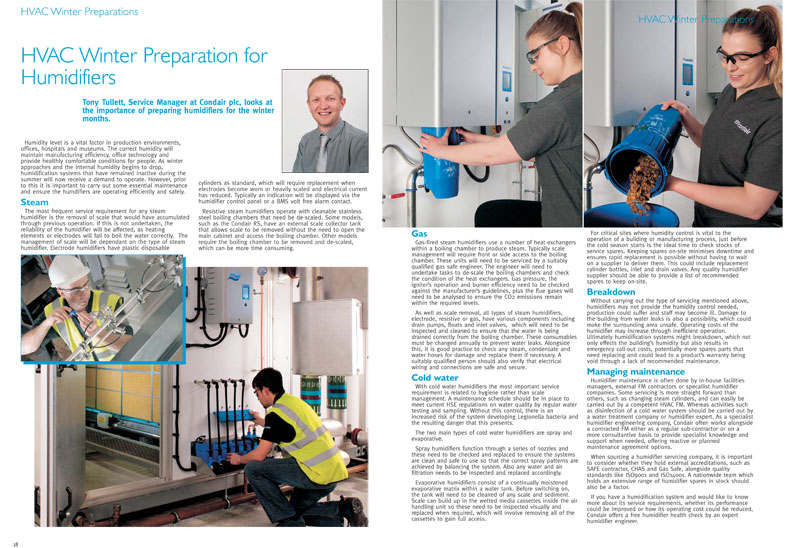
Click here to read the original article from Qube magazine Oct 2015
Preparing humidifiers for the winter season
Humidity level is a vital factor in production environments, offices, hospitals and museums. The correct humidity will maintain manufacturing efficiency, office technology and provide healthly comfortable conditions for people. As winter approaches and the internal humidity begins to drop, humidification systems that have remained inactive during the summer will now receive a demand to operate. However, prior to this it is important to carry out some essential maintenance and ensure the humdifiers are operating efficiently and safely.
Steam
The most frequent service requirement for any steam humidifier is the removal of scale that would have accumulated through previous operation. If this is not undertaken, the reliability of the humidifier will be affected, as heating elements or electrodes will fail to boil the water correctly. The management of scale will be dependant on the type of steam humidifier. Electrode humidifiers have plastic disposable cylinders as standard, which will require replacement when electrodes become worn or heavily scaled and electrical current has reduced. Typically an indication will be displayed via the humidifier control panel or a BMS volt free alarm contact.
Resistive steam humidifiers operate with cleanable stainless steel boiling chambers that need be de-scaled. Some models, such as the Condair RS, have an external scale collector tank that allows scale to be removed without the need to open the main cabinet and access the boiling chamber. Other models require the boiling chamber to be removed and de-scaled, which can be more time consuming.
Gas
Gas-fired steam humidifiers use a number of heat exchangers within a boiling chamber to produce steam. Typically scale management will require front or side access to the boiling chamber. These units will need to be serviced by a suitably qualified gas safe engineer. The engineer will need to undertake tasks to de-scale the boiling chambers and check the condition of the heat exchangers. Gas pressure, the igniter’s operation and burner efficiency need to be checked against the manufacturer’s guidelines, plus the flue gases will need to be analysed to ensure the CO2 emissions remain within the required levels.
As well as scale removal, all types of steam humidifiers, electrode, resistive or gas, have various components including drain pumps, floats and inlet valves, which will need to be inspected and cleaned to ensure that the water is being drained correctly from the boiling chamber. These consumables must be changed annually to prevent water leaks. Alongside this, it is good practice to check any steam, condensate and water hoses for damage and replace them if necessary. A suitably qualified person should also verify that electrical wiring and connections are safe and secure.
With adiabatic (cold water) humidifiers the most important service requirement is related to hygiene rather than scale management.
Adiabatic
With adiabatic (cold water) humidifiers the most important service requirement is related to hygiene rather than scale management. A maintenance schedule should be in place to meet current HSE regulations on water quality by regular water testing and sampling. Without this control, there is an increased risk of the system developing Legionella bacteria and the resulting danger that this presents.
The two main types of adiabatic humidifiers are spray and evaporative.
Spray humidifiers function through a series of nozzles and these need to be checked and replaced to ensure the systems are clean and safe to use so that the correct spray patterns are achieved by balancing the system. Also any water and air filtration needs to be inspected and replaced accordingly.
Evaporative humidifiers consist of a continually moistened evaporative matrix within a water tank. Before switching on, the tank will need to be cleaned of any scale and sediment. Scale can build up in the wetted media cassettes inside the air handling unit so these need to be inspected visually and replaced when required, which will involve removing all of the cassettes to gain full access.
For critical sites where humidity control is vital to the operation of a building or manufacturing process, just before the cold season starts is the ideal time to check stocks of service spares. Keeping spares on-site minimises downtime and ensures rapid replacement is possible without having to wait on a supplier to deliver them. This could include replacement cylinder bottles, inlet and drain valves. Any quality humidifier supplier should be able to provide a list of recommended spares to keep on-site.
Activities such as disinfection of a cold water system should be carried out by a water treatment company or humidifier expert.
Breakdown
Without carrying out the type of servicing mentioned above, humidifiers may not provide the humidity control needed, production could suffer and staff may become ill. Damage to the building from water leaks is also a possibility, which could make the surrounding area unsafe. Operating costs of the humidifier may increase through inefficient operation. Ultimately humidification systems might breakdown, which not only affects the building’s humidity but also results in emergency call-out costs, potentially more spares parts that need replacing and could lead to a product’s warranty being void through a lack of recommended maintenance.
Managing maintenance
Humidifier maintenance is often done by in-house facilities managers, external FM contractors or specailist humidifier companies. Some servicing is more straight forward than others, such as changing steam cylinders, and can easily be carried out by a competent HVAC FM. Whereas activities such as disinfection of a cold water system should be carried out by a water treatment company or humidifier expert. As a specialist humidifier engineering company, Condair often works alongside a contracted FM either as a regular sub-contractor or on a more consultantive basis to provide specialist knowledge and support when needed, offering reactive or planned maintenance agreement options.
When sourcing a humidifier servicing company, it is important to consider whether they hold external accreditations, such as SAFE contractor, CHAS and Gas Safe, alongside quality standards like ISO9001 and ISO14001. A nationwide team which holds an extensive range of humidifier spares in stock should also be a factor.
If you have a humidification system and would like to know more about its service requirements, whether its performance could be improved or how its operating cost could be reduced, Condair offers a free humidifier health check by an expert humidifier engineer.
